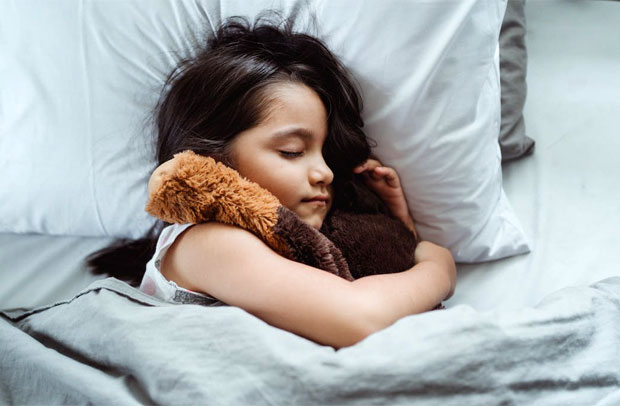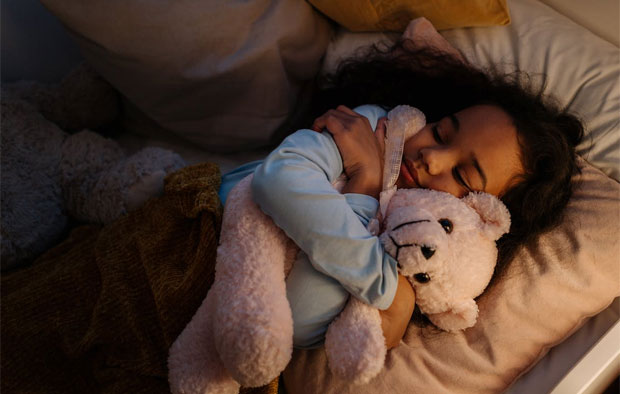How The Clocks Changing Can Affect Children’s Sleep + What You Can Do About It

How The Clocks Changing Can Affect Children’s Sleep + What You Can Do About It
This weekend, the clocks go back here in the UK, giving us an extra hour of sleep (if we’re lucky!). For parents, this is not always the case though as children are more affected by the clock change than adults and are not as likely to simply sleep in.
Children are more tuned into their circadian rhythm, the body’s internal clock, which is why they are more sensitive to change. This rhythm wants the body to sleep at night and be awake during the day and maintaining this is a great way to encourage better sleep, both in quality and quantity. Shifting this with just one hour, like we do when the clocks change, can disrupt the sleep cycle for our children who are generally used to a consistent daytime and bedtime routine and a regular sleep schedule.
Children who are going through key developmental milestones or who are already having problems with sleep are likely to be more affected. Young children also have less understanding about the concept of time and rely more on things that they can see such as daylight and darkness to judge whether it’s time to sleep or time to be awake.

What You Can Do to Minimise Sleep Disruption When the Clocks Change
The clocks go back in the UK on the 29th of October this year. That’s just under a week away which gives you some time to prepare for the event to help reduce any disruption to your child’s sleep.
Below are some tips to make it a smooth transition:
- Make gradual adjustments. If you can, it’s a great idea to make gradual adjustments to your child’s bedtime and wake up times. Simply make 10–15-minute changes over a few days before the clocks change to gradually get your child used to the change. Also move mealtimes and nap times by the same amount of time to help their bodies get used to the new schedule.
- Recognise the importance of daylight during the day and darkness at night. Exposure to natural daylight during the day is an important part of the circadian rhythm for both children and adults. It signals to the body that it’s daytime and that it’s time to be awake. Similarly, in the evening it’s time to reduce the exposure to light by dimming the lights in your home. This will signal to the body that it’s time to start winding down ready for sleep. Bedrooms should be kept dark at night to encourage a good night’s sleep too. If your child uses a nightlight, try to keep it on a dimmed setting if possible.
- Stick to a calming bedtime routine. Children are creatures of habit and it’s important to stick to a calming bedtime routine during the clock change too. Avoid eating and drinking too close to bedtime (especially sweet things) and avoid overstimulation at this time too. The time before bed should be spent unwinding. Do something calm together, such as reading books, drawing pictures, jigsaw building, playing a game, etc., then spend some time getting ready for bed. Bath, book, bed is a routine that works well for many children. Routines really help children at all times and it’s important to try to stick to them when possible, to limit disruptions.
Hopefully the above tips will help your little ones adjust to the change!





